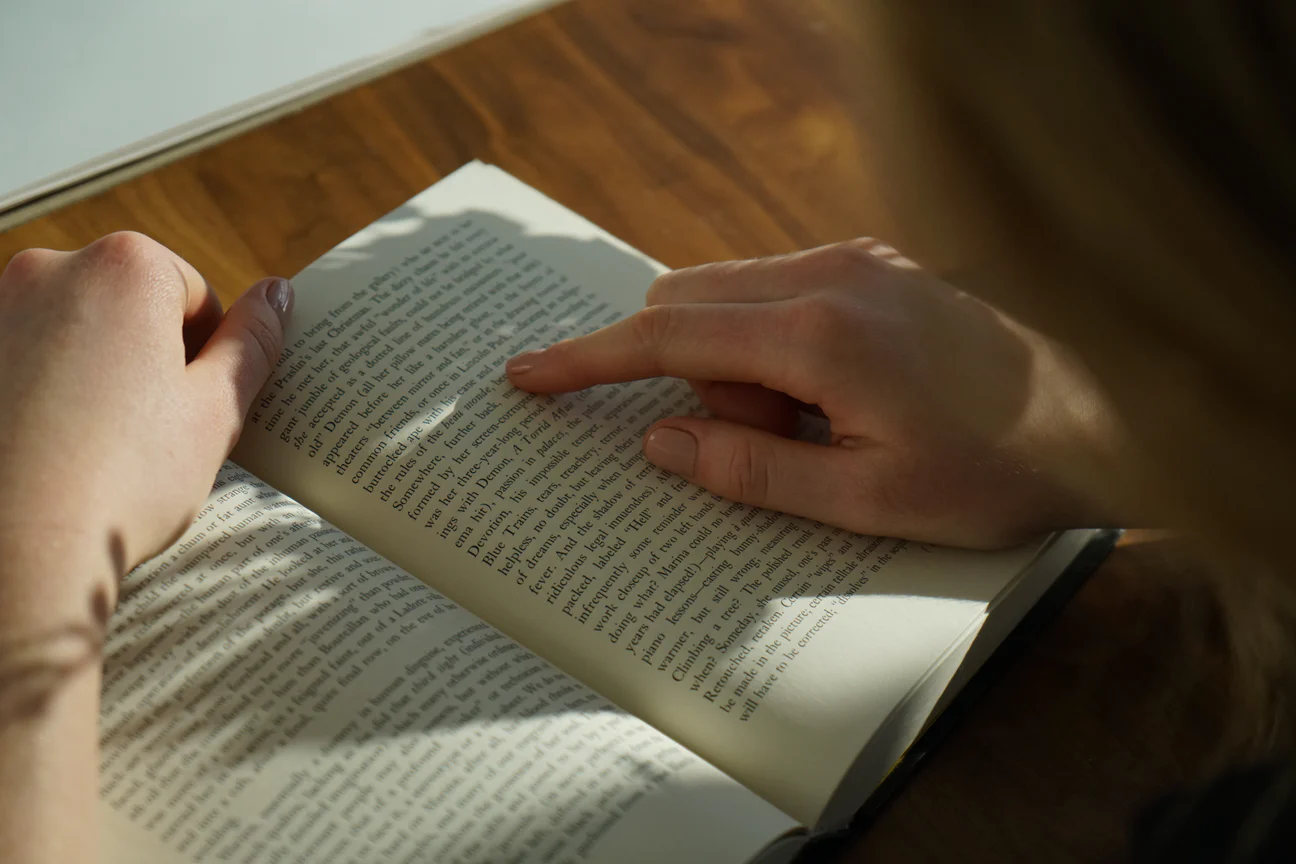How and Why I Annotate My Books
I know what you’re thinking. You’re getting flashbacks to middle school English class where they made you take banal “post-its” or “notes” every other page. Where the constant stopping and scribbling kept you from savoring the sliver of entertainment the insipid novel mandated by the school had to offer. Trust me, if you told me three years ago that I would enjoy annotating the books I read, I would have been more surprised than if you told me English class would be held over tiny pixelated squares on my computer. Yet when given more freedom in the books I read and the way I read, I’ve discovered that annotating doesn’t have to be an irritating chore – but rather something you can immensely benefit from.
Now, I must get something out of the way. When I refer to annotation, I don’t mean that I’m writing in the margins of books. Maybe it’s because my handwriting is dreadful, but nonetheless, putting my notes onto the cleanly printed paper has always felt sacrilegious! Sure, if you own the book, writing in it is innocuous, but that never aides my feeling of malaise. Personally, I have a notebook that I use for all of my thoughts.
Other than my issue with writing in books, there are other reasons why I see it better to use a notebook. For one, the margins in a book are often small and you can’t encompass all your thoughts within it. Post-It notes might fit your annotations if you are writing laconically or in an infinitesimal font, but they still block words on the page if you want to go back and re-read it. They’re flimsy, can get lost very easily, and rip with a slightly gauche turn of the page. Using a notebook is ideal. Especially since oftentimes the books I read are borrowed from the library or are Ebooks. And with a notebook, you can personalize your annotations with colors and drawings and make it aesthetically pleasing.
Yet, having a notebook that matches your aesthetic isn’t enough to get everyone on board with taking notes about their books. Don’t fret, however, because I have a plethora of reasons.
Firstly, it keeps me from rushing through a book. Any avid reader knows the pain of having rushed through a beautiful book and never getting to re-experience the feeling of reading it for the first time. The thoughts about what comes next can never pop up again in your mind because you already know how it ends. However, when you stop and take notes, you stop and think. Ponder what that one character’s decision will lead to or whether that oddly specific detail is key foreshadowing to the mystery of the plot. When you finally get to the last page of the novel, you won’t have any regrets.
An academically useful benefit of taking notes on the books you indulge in is that it aids you in advancing your vocabulary. When luxuriating in a book, I stop myself whenever I discover a word I don’t know. I promptly search it up and write down the word and definition (as well as any synonyms that might help me) into my notebook. By writing it down, not only will I have a higher probability of remembering the meaning, but I can also use it in the future. As a student, I come across many occasions where I have to spice up an essay, and my notebook is a lifesaver. In addition to that, many of us are close to taking the SATs, and what better way to start preparing for the vocabulary section?
On a more sentimental (and slightly cringy) note, annotations can help you take more from the books you read. Reading is more about escaping from reality and killing boredom, but it can teach you a lot and you can implement some of the beautiful messages into your own philosophy of life. It doesn’t have to be the theme of the book either. It can be a powerful quote or a lesson you learned from the mistakes a character has made.
Lastly, taking notes and jotting down quick but concise plot summaries keep you from forgetting key details from your favorite books. I know the pain of finding somebody who adores the same book as you. As you rapturously gush about it, they’ll mention an illustrious part of the book and ask you about it. Your mind runs completely blank... you can’t remember a key detail of one of your favorite books. When the details they mention rings zero bells in your head (no exaggeration), it feels like your soul has left your body with only an empty shock remaining and a lugubrious countenance.
In raging frustration, you’ll end up desultorily re-reading the book. Yet it doesn’t have to be like that – if you had annotations, you could just go back to your notebook. If it doesn’t jog your memory enough, it will direct you to what page to check out. Or maybe you won’t have forgotten it at all, since you didn’t rush through the book in the first place.
Annotating doesn’t have to be austere and be done in lassitude – rather, it can be enjoyable and a fun creative outlet that makes reading even more piquant. You can illustrate or write out your favorite scenes. Enhance your vocabulary and take meaningful messages from your novels. Or even be one of those impressive people that can remember some of their favorite quotes word for word. Whatever the case – annotation can help!





